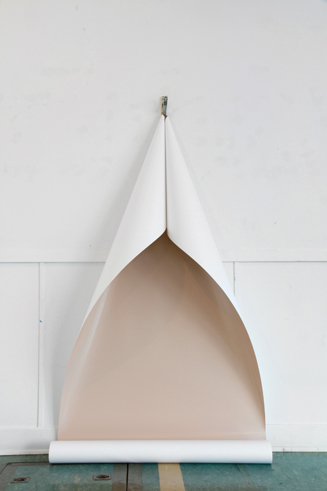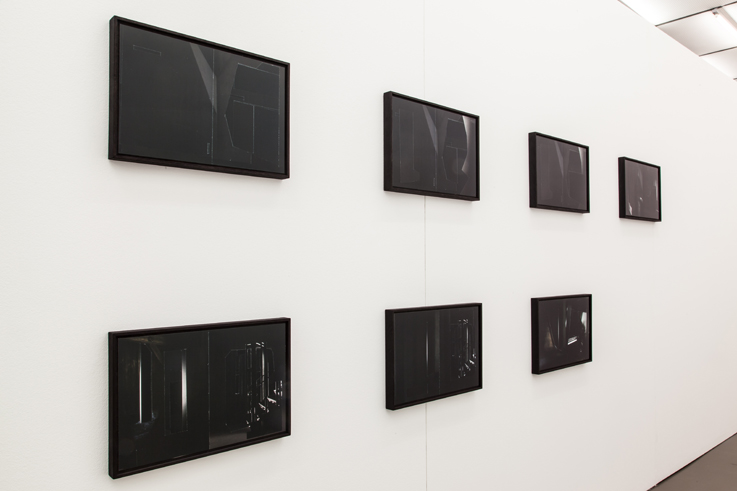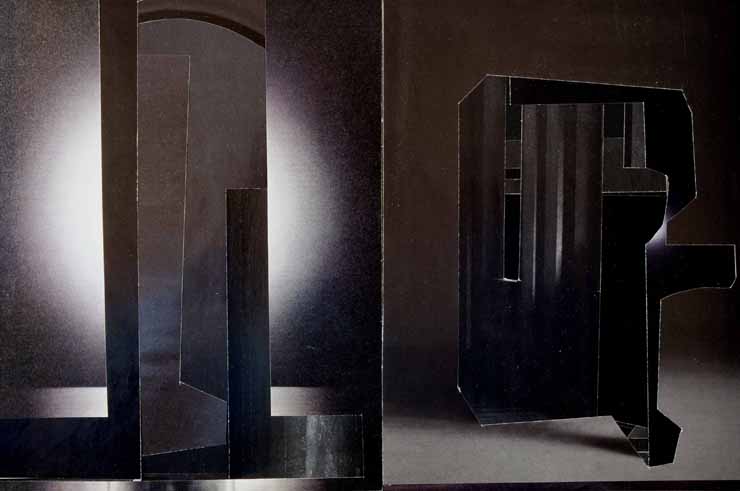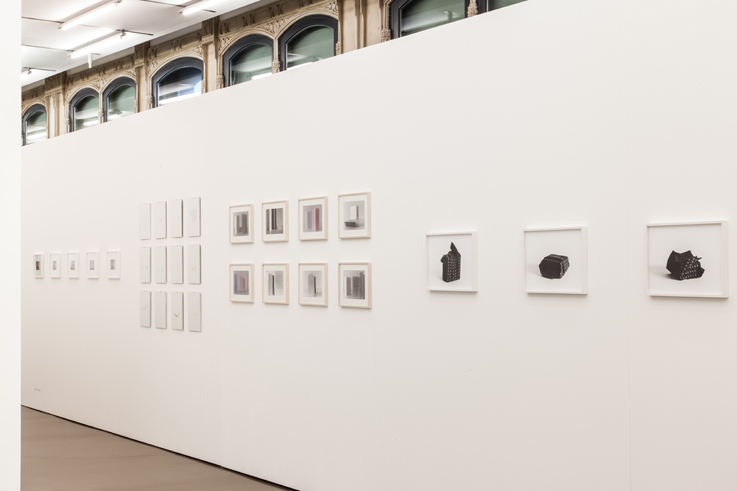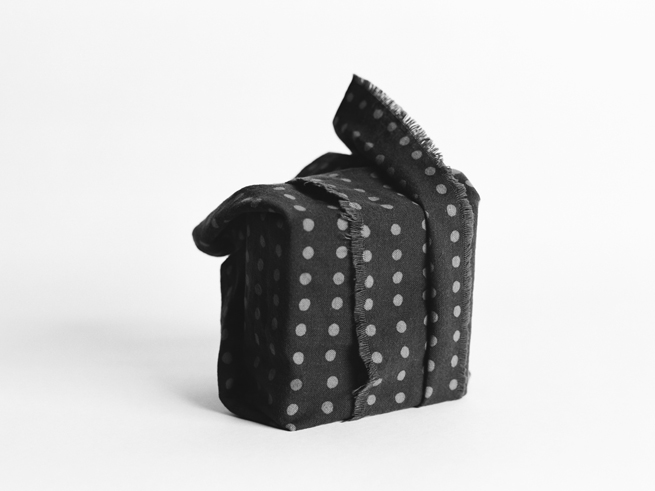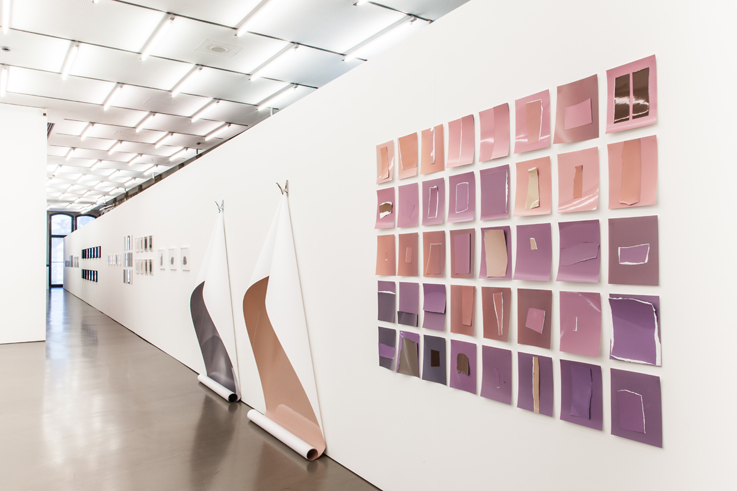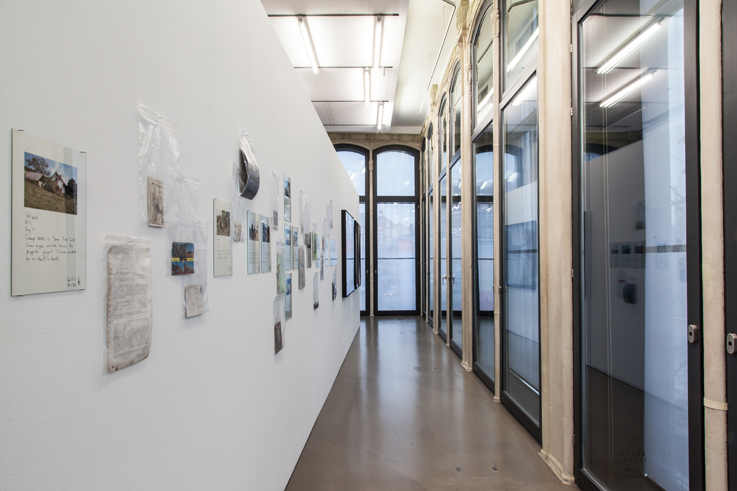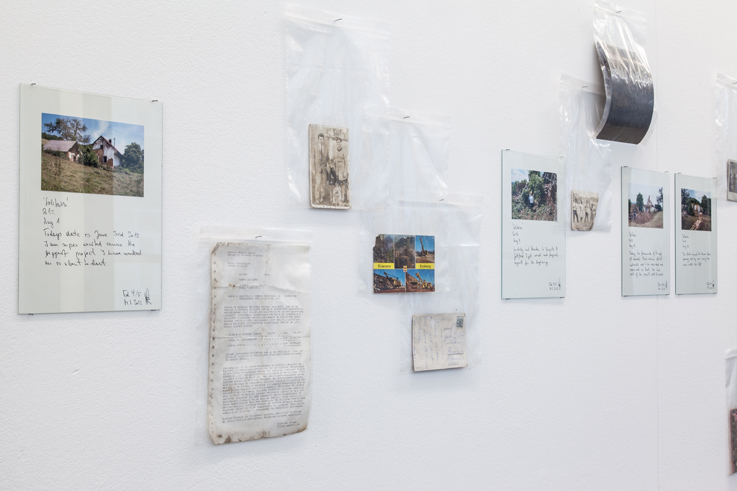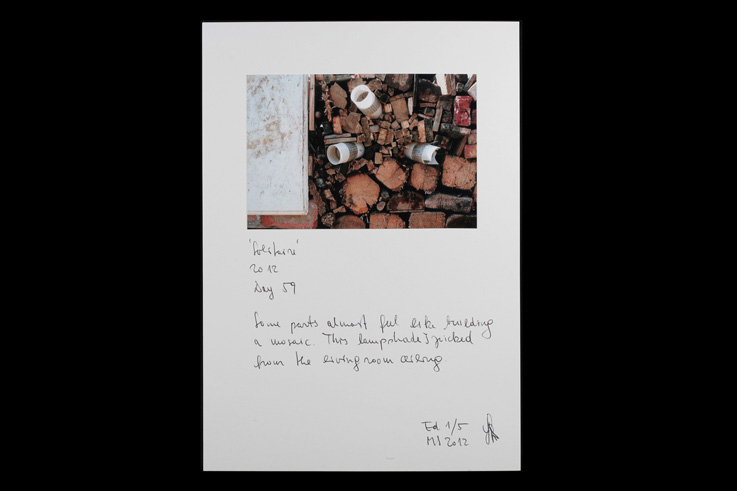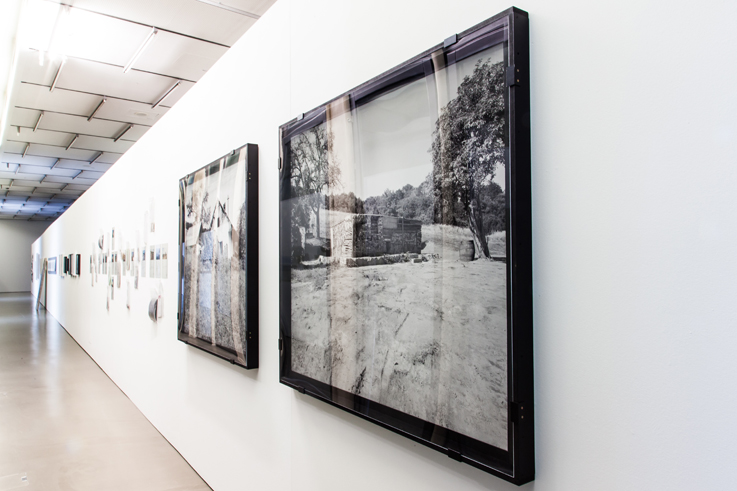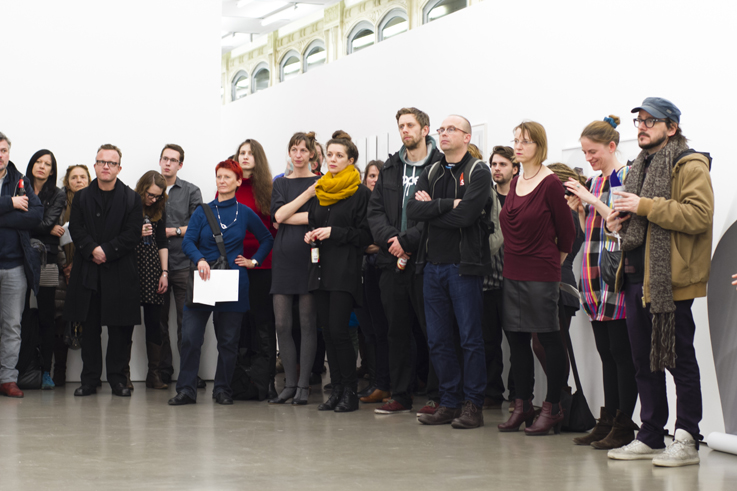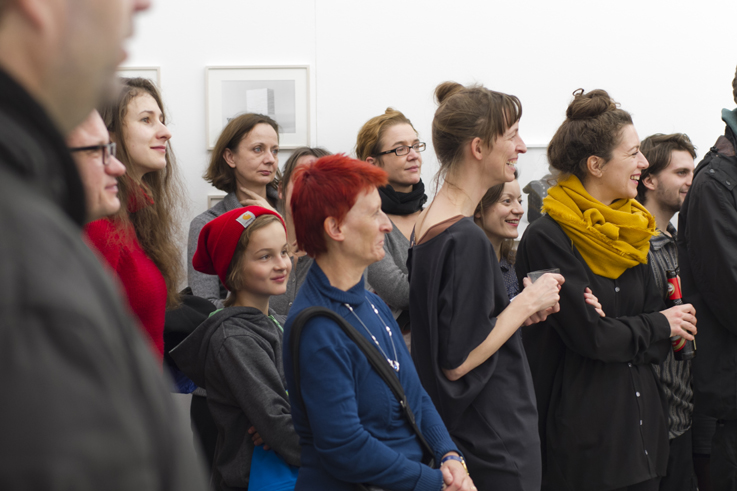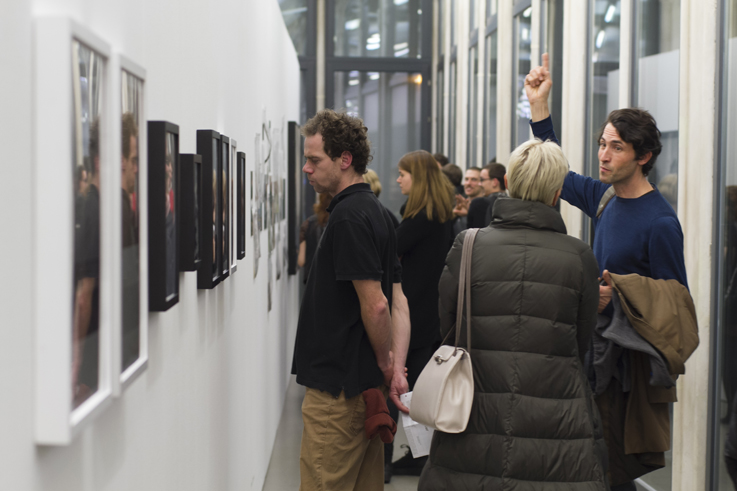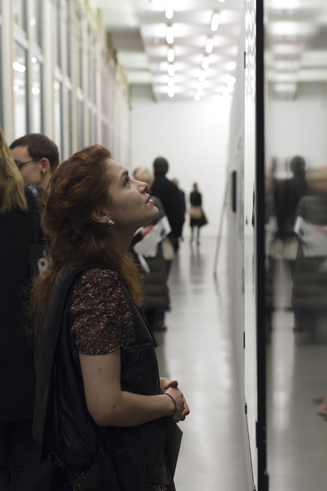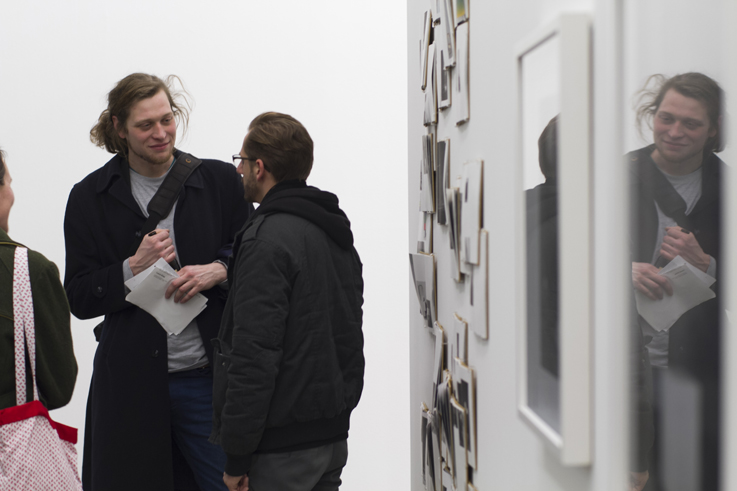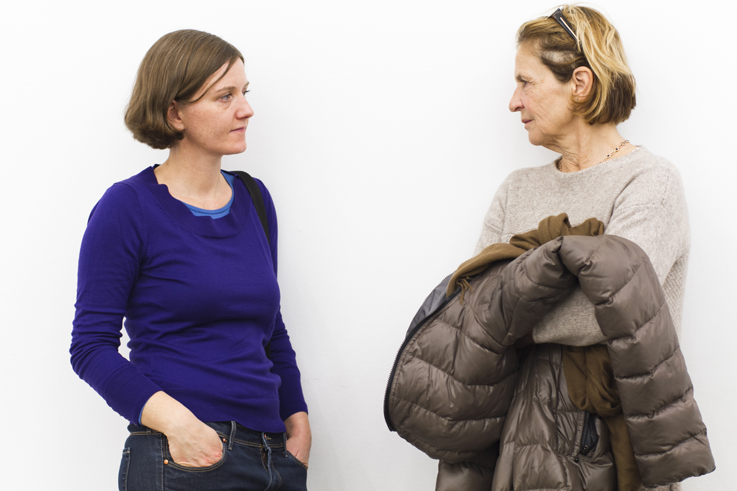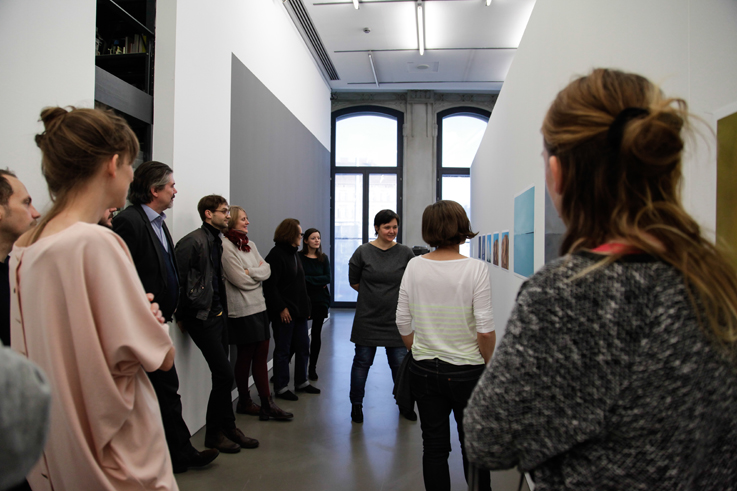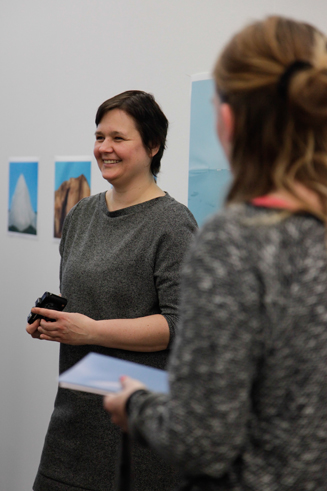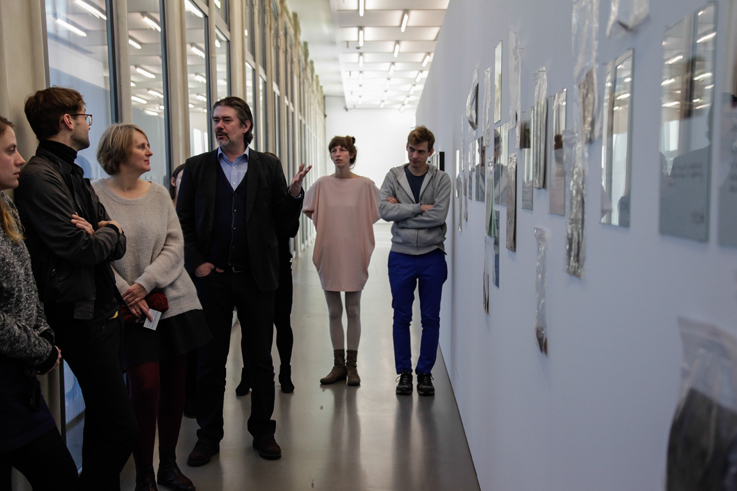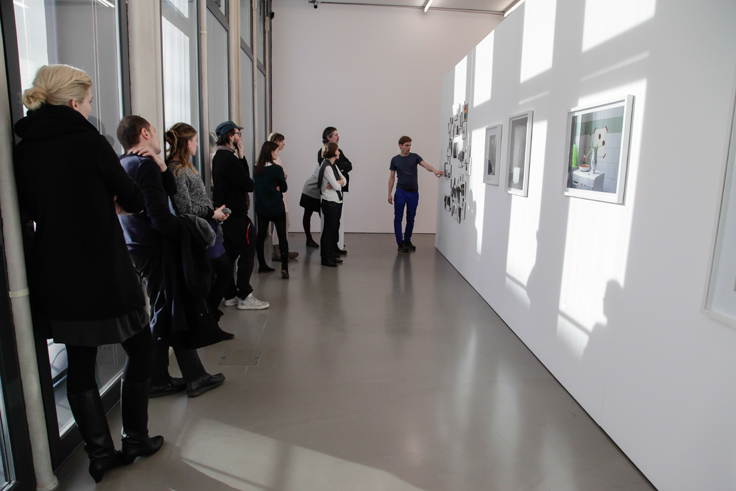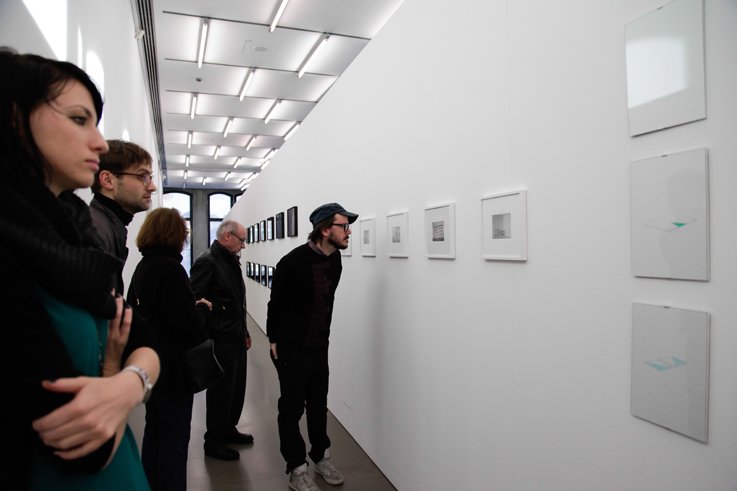Sculpture
Infos
Duration
7.12.2013.- 16.2.2014
Opening
6.12.2013, 8 pm
in the scope of CMRK
Exhibition talk
with the artists present
7.12.2013, 1 pm
Opening hours
Tue – Sun, 10 am – 5 pm
One Thursday each month the exhibition stays open until 9 pm
12. 12. 2013
16. 1. 2014
13. 2. 2014
With
Laurie Kang (CA), Kasia Klimpel (PL/NL), Lotte Lyon (AT), Christian Mayer (AT), Peter Puklus (HU), Carly Steward (US), Michael Strasser (AT), Anita Witek (AT)
Intro
Cutting, stacking, furling, folding fragile materials and arranging them in precarious and transitory states of equilibrium that the camera translates into sculptural phenomena or into simulacra of spaces or of architectural or natural structures on the one side; on the other, pictures, models, dummies, still-life-like constellations that have become installations, sculptural arrangements that have been translated into pictures: these are different approaches to the issue of photography as material and embodiment and its entanglement with the world of things, of reality that completely disregards the question of referents. What is at issue is not the connection between image and reality. The confrontation of material and image takes the form of collision rather than that of representation: a collision of materials, bodies, surfaces with the visual (or the gaze) rather than that of different types of visuality; a mutual translation, a deception, a sleight-of-hand, a series of revelations and concealments, of making one thing pass for another, of oscillations between picture and object, whose purpose is to put a distance between the act of making things visible and their visibility.
The exhibition project focuses on photography as an ongoing material practice rather than on the question of the production of meaning. The resurgence of interest in the analogue might be seen as a kind of desire for the image as object, for objects as images, a desire for images as raw sensual data, images that do not refer to anything but represent a kind of performance in and of themselves, a discrepancy between what can be said and what can be seen. This discrepancy may go so far that literally next to nothing remains visible in the images. However – and this is truly remarkable – this does not affect their ability to present a visual event, a space for articulation, in which an essential part of the visual is represented by a gap.
Read more →Sculpture
Schneiden, Schichten, Rollen, Falten auf der einen Seite – prekäre und flüchtige Gleichgewichte fragiler Materialien, deren Anordnung die Kamera in skulpturale Erscheinungen übersetzt oder in eine Simulation von Räumen, Architekturen oder auch von Natur. Installation gewordene Bilder, Modelle, Attrappen, Stilleben-artige Konstellationen auf der anderen Seite – die als skulpturale Arrangements ins Bild übersetzt werden.
Von unterschiedlichen Seiten her wird die Frage von Fotografie als Material und Körper sowie ihre Verschränktheit mit der Welt der Dinge, des Realen gestellt, allerdings jenseits der Frage nach den Referenten: Nicht der Zusammenhang zwischen Bild und Wirklichkeit steht zur Debatte, die Konfrontation von Material und Bild ist eher eine Kollision als eine Repräsentation. Eine Kollision nicht primär von Visualitäten, sondern von Materialien, Körpern, Oberflächen mit dem Visuellen (oder dem Sehen), eine gegenseitige Übersetzung, eine Täuschung, eine List, ein Zeigen und ein Verdecken, das Eine für das Andere ausgeben, ein Oszillieren zwischen Bild und Objekt, um die Sichtbarmachung vom Sichtbaren zu entfernen.
Das Ausstellungsprojekt rückt die Frage nach Bedeutungsproduktionen in den Hintergrund und richtet sich auf Fotografie als eine nach wie vor materielle Praxis. Das wiederkehrende Interesse am Analogen erscheint auch als eine Art Begehren am Bild als Objekt, an den Objekten als Bildern, als eine Art Begehren am Bild als roher sinnlicher Präsenz, an Bildern, die auf nichts verweisen, sondern die selbst eine Art von Performanz darstellen, eine Unähnlichkeit zwischen dem Sagbaren und dem Sichtbaren. Diese Unähnlichkeit kann soweit gehen, dass auf den Bildern buchstäblich so gut wie nichts mehr zu sehen ist, sie aber dennoch ein visuelles Ereignis darstellen, einen Ort der Artikulation, dort, wo ein wesentlicher Teil des Visuellen sich im Grunde nur als Lücke zu erkennen gibt.

